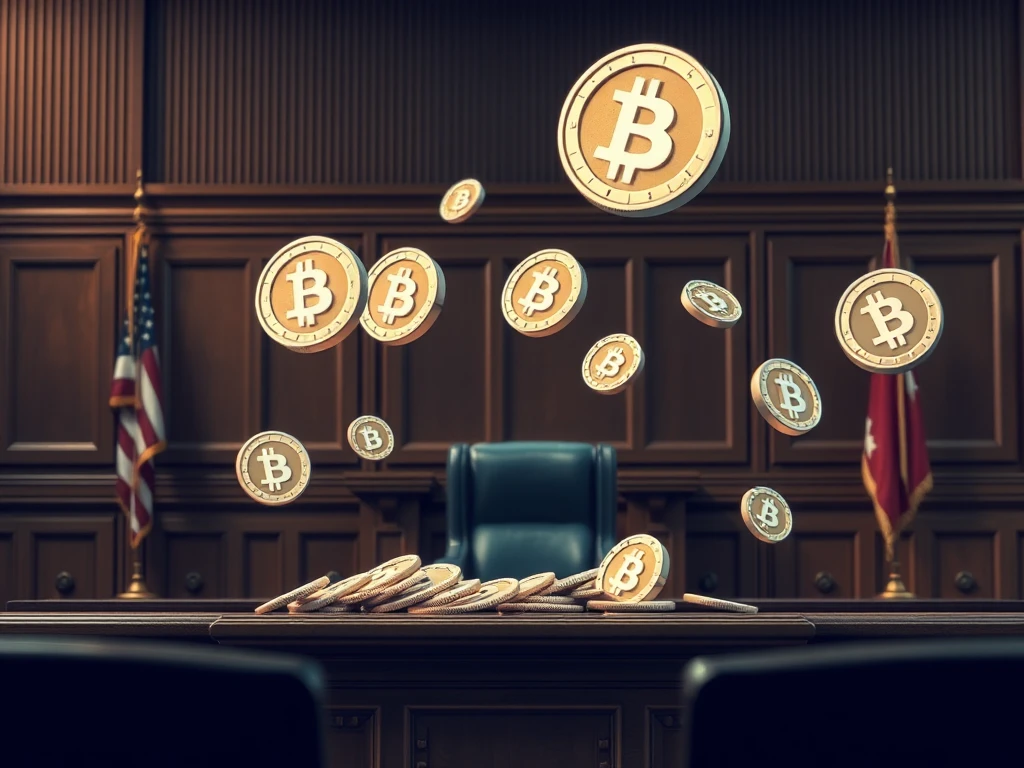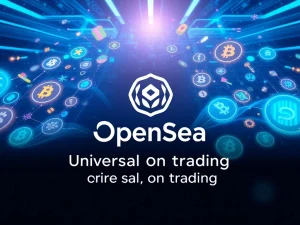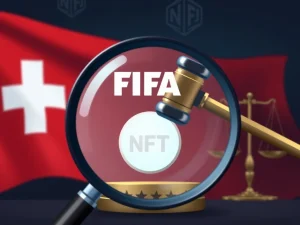OpenSea Demands SEC Exemption: A New Era for NFT Marketplaces?

The booming world of Non-Fungible Tokens (NFTs) has caught the attention of regulators worldwide, and the debate around how these digital assets should be governed is heating up. Leading NFT marketplace OpenSea has taken a proactive stance, directly appealing to the U.S. Securities and Exchange Commission (SEC) to draw a clear line: NFT marketplaces, they argue, should not be subjected to the same stringent regulations as securities exchanges. Let’s dive into OpenSea’s compelling case and explore what this could mean for the future of NFTs.
Why Does OpenSea Say NFT Marketplaces Aren’t Exchanges?
In a detailed letter addressed to SEC Commissioner Hester Peirce, OpenSea’s legal team, Adele Faure and Laura Brookover, laid out their arguments. Their core point? NFT marketplaces operate fundamentally differently from traditional securities exchanges and therefore shouldn’t be classified as such. Here’s a breakdown of their key arguments:
- No Transaction Execution: Unlike stock exchanges that directly execute trades, NFT marketplaces primarily provide a platform for buyers and sellers to connect. The actual transaction often occurs on the blockchain itself, outside of the marketplace’s direct control.
- Not Intermediaries: OpenSea contends they don’t act as intermediaries in the traditional sense. They facilitate listings and discovery, but they don’t manage funds or directly handle the exchange of assets in the way a broker-dealer would.
- No Aggregation of Identical Assets: Securities exchanges typically deal with fungible assets – one share of stock is the same as another. NFT marketplaces, however, deal with unique, non-fungible items. They don’t bring together multiple sellers offering the ‘same’ asset because each NFT is distinct.
Essentially, OpenSea is emphasizing the unique nature of NFTs and their trading environment, arguing that applying securities exchange regulations is like trying to fit a square peg into a round hole.
The Shadow of SEC Regulation: What’s at Stake?
The uncertainty surrounding SEC regulation casts a long shadow over the entire NFT space. Why is this so important? Here’s what’s at stake:
- Innovation Chill: Overly strict regulations could stifle innovation and growth in the burgeoning NFT market. Startups and established players alike might hesitate to invest and develop new platforms if faced with burdensome compliance requirements.
- US Competitiveness: OpenSea explicitly mentions the risk of hindering US technology companies’ ability to lead in the NFT space. If regulation is too heavy-handed, innovation and talent could move to more crypto-friendly jurisdictions.
- Operational Overheads: Complying with securities exchange regulations would likely impose significant operational and financial burdens on NFT marketplaces. This could disproportionately impact smaller platforms and potentially consolidate the market, reducing competition.
OpenSea’s plea isn’t just about their own business; it’s about ensuring a healthy and vibrant ecosystem for NFTs in the US.
Seeking Clarity: Informal Guidance and a Path Forward
To address the current ambiguity, OpenSea is urging the SEC to issue clear, informal guidance specifically for NFT marketplaces. They point to recent SEC statements regarding memecoins and stablecoins as examples of helpful clarity in the crypto space. What kind of guidance are they hoping for?
- Exemption from Exchange Definition: Explicit confirmation that NFT marketplaces, as they currently operate, do not fall under the legal definition of securities exchanges.
- Exemption from Broker Registration: Similar clarity that NFT marketplaces are not required to register as brokers, given they don’t offer investment advice, execute transactions in the traditional sense, or custody customer funds.
This call for informal guidance is a strategic move. It allows the SEC to provide clarity relatively quickly without going through the lengthy process of formal rulemaking. It’s a way to address the industry’s immediate concerns and foster a more predictable regulatory environment.
The Broader Landscape of Crypto Regulation
This appeal from OpenSea comes at a time of evolving perspectives within the SEC itself. Under the Trump administration, there have been signs of a potentially softer stance on crypto regulation compared to the more assertive approach previously taken. We’ve seen:
- Dismissed Enforcement Actions: The SEC has dropped some enforcement actions against crypto firms, suggesting a possible re-evaluation of previous positions.
- Probe Closures: Investigations into crypto companies for alleged securities law violations have been closed, including one involving OpenSea itself.
- Statements on Memecoins and Stablecoins: The SEC has issued statements clarifying the status of certain stablecoins and memecoins, indicating a willingness to provide tailored guidance for different types of crypto assets.
However, the overall direction of crypto regulation in the US remains uncertain. While there are signals of a more nuanced approach, the SEC is still actively scrutinizing the crypto space, and further regulatory developments are inevitable. OpenSea’s proactive engagement is a crucial step in shaping how those regulations will ultimately impact the NFT world.
What Does This Mean for NFT Enthusiasts and the Future?
The outcome of OpenSea’s appeal to the SEC will have significant implications for everyone involved in NFTs – creators, collectors, and platforms alike. If the SEC grants the requested exemptions, it could:
- Boost Confidence: Provide greater regulatory certainty, encouraging further investment and participation in the NFT market.
- Foster Innovation: Create a more favorable environment for NFT platforms to innovate and develop new features and services.
- Maintain Accessibility: Help ensure that NFT marketplaces remain accessible to a wide range of users, without excessive compliance costs creating barriers to entry.
Conversely, if the SEC decides to apply stricter securities regulations to NFT marketplaces, the industry could face significant headwinds. Increased compliance burdens, potential legal challenges, and a chilling effect on innovation are all possibilities.
Conclusion: A Pivotal Moment for NFT Regulation
OpenSea’s bold move to directly engage with the SEC underscores the critical juncture the NFT industry has reached. The question of NFT regulation is no longer a distant concern; it’s a pressing issue that will shape the future trajectory of this exciting and rapidly evolving space. As the SEC considers OpenSea’s arguments, the entire crypto world will be watching closely, hoping for a regulatory framework that fosters innovation while appropriately addressing any legitimate risks. The coming months could very well define the landscape for NFT marketplaces and the broader NFT ecosystem for years to come. Stay tuned, because this story is far from over!










